This session will equip HR professionals with the knowledge and tools to create workplaces where neurodivergent employees feel valued, supported, and empowered. Participants will begin by developing a foundational understanding of neurodiversity and the unique strengths and perspectives that neurodivergent individuals bring to the workplace. The presentation will then highlight current barriers in hiring, communication, and workplace culture that can unintentionally exclude or disadvantage neurodivergent employees. Presentation Summary: Learning Objectives (at least 3):
Through practical strategies and real-world examples, attendees will explore inclusive practices that promote equity and belonging, such as accessible recruitment processes, flexible accommodations, and supportive communication approaches. Finally, the session will emphasize the broader organizational impact of neurodiversity-affirming practices, including enhanced employee well-being, improved retention, and increased innovation.
By the end of the session, participants will be prepared to champion policies and practices that strengthen both workplace culture and organizational success.
Learning Objectives:
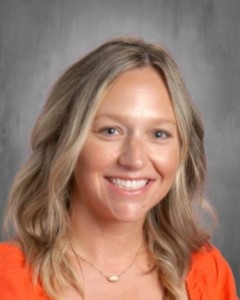
Kelsey Kaestner, M.S., CCC-SLP, is a licensed Speech-Language Pathologist in Kansas, Missouri, and Georgia, and holds national certification through the American Speech-Language-Hearing Association (ASHA). She earned her Bachelor of Science in Communication Sciences and Disorders from Missouri State University in 2012 and a Master of Science in Speech-Language Pathology at Rockhurst University in 2014.
Kelsey is a practicing Speech-Language Pathologist with experience supporting neurodivergent individuals across a variety of settings, including vocational training. In addition to her clinical work, she serves as the Executive Director of Club CAN – Community Appreciating Neurodiversity Inc., a nonprofit organization dedicated to fostering inclusive opportunities, advocacy, and community for neurodivergent individuals and their families.
Her dual roles in clinical practice and nonprofit leadership reflect her commitment to building environments where all individuals are understood, supported, and empowered to thrive.
We’ll be covering some basics in relationships. We all have a myriad of people that we are in community with – family, partners, co-workers, friends, associates. This talk is going to focus on 4 specific behaviors that have been shown to be communication killers. We will talk about those, and what we can do to combat those behaviors in our own lives. Lastly, we will explore why this even matters in terms of emotional and physical health.
Learning Objectives:
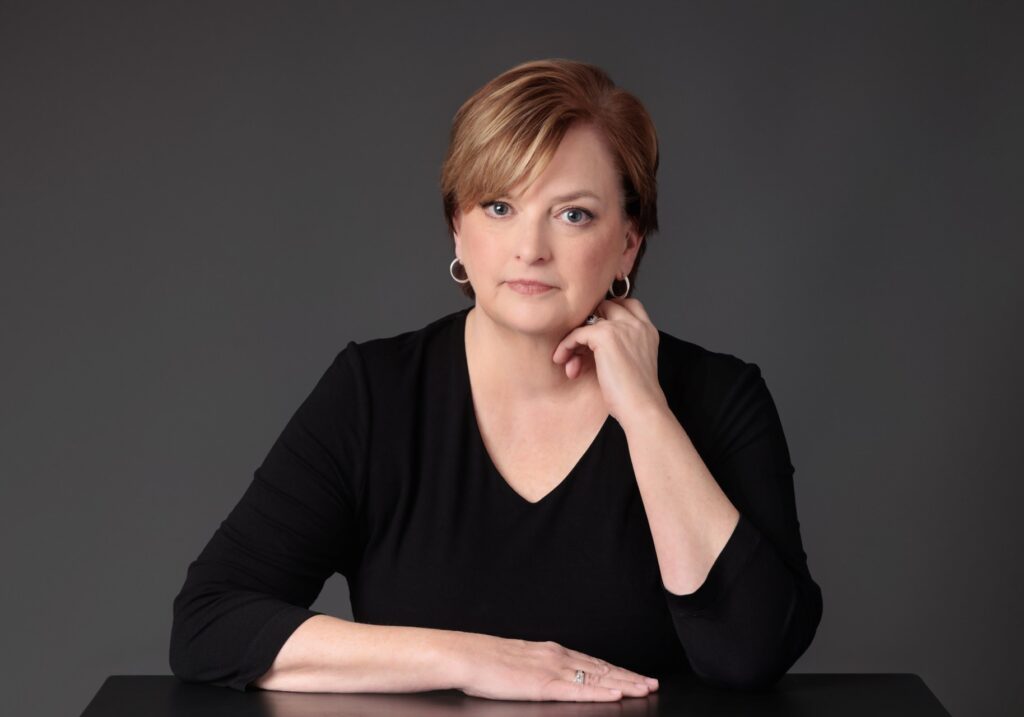
Alisha Bond is a Licensed Marriage and Family Therapist known for her compassionate approach to mental health and holistic wellness. She is building a flourishing private practice in Wichita, Kansas that reflects her commitment to helping individuals navigate their emotional landscapes. Additionally, Alisha serves as an outpatient clinician at Prairie View, in Newton Kansas, where she works with a diverse range of adult clients.
Alisha’s educational journey began with a Master of Health Services Administration from the University of Kansas, which she completed in 1992. This degree provided a robust foundation in health care systems and administration. However, her passion for helping others led her to pursue further education, culminating in a Master of Science degree in Family Therapy from Friends University in 2024.
In her practice, Alisha specializes in treating complex trauma, co-occurring disorders, anxiety, and depression using a variety of therapeutic approaches based on client need. Her expertise is complemented by recent completion of intensive training in Traumatic Stress from the Trauma Research Foundation, equipping her with wide-ranging techniques and strategies to support her clients. Alisha is further expanding her knowledge base to include a focus on Internal Family Systems as a therapeutic approach to managing complex trauma.
Alisha believes in a collaborative approach to therapy, offering whole person care that emphasizes the interconnectedness of mental, physical, emotional, cultural and spiritual health. Through her work, Alisha strives to empower clients to achieve greater well-being and foster resilience in their lives.
This interactive workshop explores the difference between calling in and calling out—two approaches to responding to micromessages, bias, and cultural insensitivity. Participants will learn how to navigate difficult conversations with empathy, foster a culture of belonging, and advocate for meaningful change. Through engaging discussions, real-world scenarios, and guided practice, attendees will develop confidence and skills to speak out on issues that matter in a way that encourages learning and growth rather than division.


As a Licensed Professional Counselor, this presentation will focus on the importance of mental health in the workplace and its direct connection to the Human Resources Body of Applied Skills and Knowledge (BASK). Mental health is a critical factor in employee well-being, performance, and retention, and HR professionals play a pivotal role in recognizing, managing, and supporting mental health in the workplace.
Diversity, equity, and inclusion are at the core of the mission of most HR’s, particularly employees. There is an institutionalized commitment to uplifting the well-being of the state and surrounding communities. When DEI is mission critical, it is a part of everyday life problem solving and decision-making—both during times of crisis and day-to-day operations.

People thrive and perform at a high level when they feel they belong. Join us to unlock peak potential in the workshop "The toughest DEI Cycle to crack"
This session will take you on a transformational journey on one of the most critical concepts you'll need to internalize and understand for your own development and for the positive change you want to see in your organization.
This workshop will help you understand exactly why DEI is so hard to talk about for everyone.

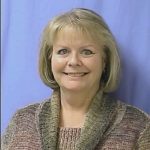
Cindy Villarreal, Kansas Department of Corrections, is an Offender Workforce Development and Employment Retention Specialist and certified trainer, with over 20 years’ experience in the field. She graduated from Fort Hays State University with a Bachelor’s in Music Education, and after a time in banking and in early childhood education, found her passion in workforce development. As part of the KDOC Reentry team, she prepares justice-involved individuals to become productive and valued employees and responsible citizens. She has presented at many levels, including local, regional, and national offender employment conferences, where her workshop was reviewed as being one of the best on the subject due to the practical advice and techniques given towards success in Second Chance and Fair Chance Employment.
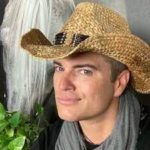
Clinton Shane Bradley has been a minister, horse wrangler, soldier, international fashion model, journalist, franchise owner, tenured HR professional, corporate leader – a world traveler. These unconventional paths have become lessons forged from opportunity, and failure. These lessons are the cornerstone of my philosophical approach to our connected diversities. We are humans – not numbers. We place policy and “professional etiquette” before transparency and openness. My 20-years spent in the trenches of HR have provided truths beyond the complex navigation of ego and comfort. It is possible to include those we consciously, or unconsciously, marginalize through purposeful listening and sharing. It is possible to have an uncomfortable conversation with a colleague and leader – while remaining respectful. My truth is to be your guide down a hopeful path with kindness, empathy, advocacy, and belonging. Click here for more information about Clinton and here for LinkedIn.

We’ve defined the concepts; we’ve talked about what diversity is, what inclusion is and how the concepts relate to the workplace. We’ve told everyone why diversity matters, why inclusion matters, and explained with charts, graphs and statistics about return on investment and the business case for inclusion. But we are beyond talk and data. It’s time for action. If you’ve found yourself asking “how”?


An inclusive workplace recognizes and celebrates the many ways that we are all different. This presentation will explore gender pronouns and provide information to help us better understand what they are and why they matter.

The idea of creating an internal diversity, equity, and inclusion program can be daunting. You know it is critical work and you want to do it the right way. As someone who has both created and managed an internal DEI program and advised clients who are doing the same, Ashlyn has learned a few things along the way. The aim of this discussion is to provide a useful and practical starting point for those interested in creating authentic, active, and healthy DEI programs and policies in their businesses or workplaces.
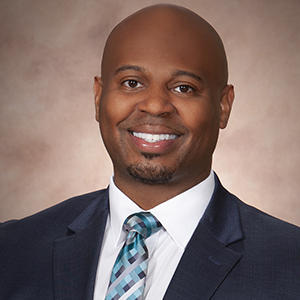
Post-pandemic, our working environment has shifted. There is more of a demand for flexible work opportunities. Not only that, there has been an increase in calls for organizations to focus on diversity, equity, and inclusion (DEI). But, how can an organization advance DEI effectively while some staff work in the office, others from home, and some doing both? How do you ensure that employees, no matter their location, stay engaged with the culture? Advancing DEI In a Hybrid Work Environmentwill address these concerns and more.

This presentation highlights African Americans from Kansas who influenced society by pioneering early DE&I initiatives through civic engagement, sciences, civil rights, sports, business and education. These early Trailblazers were often the “first” in their field to make significant contributions on a national and global scale. Human resource professionals will connect the importance of early Kansas as a “Free State” and the legacy we are experiencing today.

Inclusive Communication is the method of using communication to allow everyone within a workplace to belong. In the workplace, there are different levels of seniority, professional experiences, cultural backgrounds and functional and access needs. If you’re communicating a policy that impacts a variety of people, how do you engage all of them? Engaging a diverse audience creates cohesion and momentum, but requires intention, preparation, and appropriate delivery.

“We the people, in order to form a more perfect union…. Do ordain and establish this constitution for the USA (US, 1787). These words, written in 1787, were intended to represent a country that supported the life, liberty, and pursuit of happiness (US, 1776) of all its people. Now, the question – which people are they referring to? How is DEI&B being defined? What does it mean to practicing attorneys? Are we guilty of camouflaging diversity in law or not guilty for not saying what’s right or wrong?
Explore the fundamental question of whether the work of diversity, equity, inclusion, and belonging is protected by the US Constitution. Learn the understanding of the constitution as it reflects DEI&B.

People thrive and perform at a high level when they feel they belong. Join us to unlock peak potential in the workshop “The toughest DEI Cycle to crack”
This session will take you on a transformational journey on one of the most critical concepts you’ll need to internalize and understand for your own development and for the positive change you want to see in your organization.
This workshop will help you understand exactly why DEI is so hard to talk about for everyone.
Whether you are an insider (those who feel comfortable and included) or an outsider (someone who feels excluded or that there are barriers) – DEI is challenging to talk about.
If we can’t talk about it, we can’t know what people are experiencing, how we can be better colleagues or leaders, and we can’t improve the experience for our people.
Everyone will feel included in this workshop. While DEI might be a polarizing topic in some circles, this is about building belonging for ALL for the betterment of people and your organization.
You’re guaranteed to have some ah-ha moments, to feel seen, and to gain understanding you didn’t know you were missing.